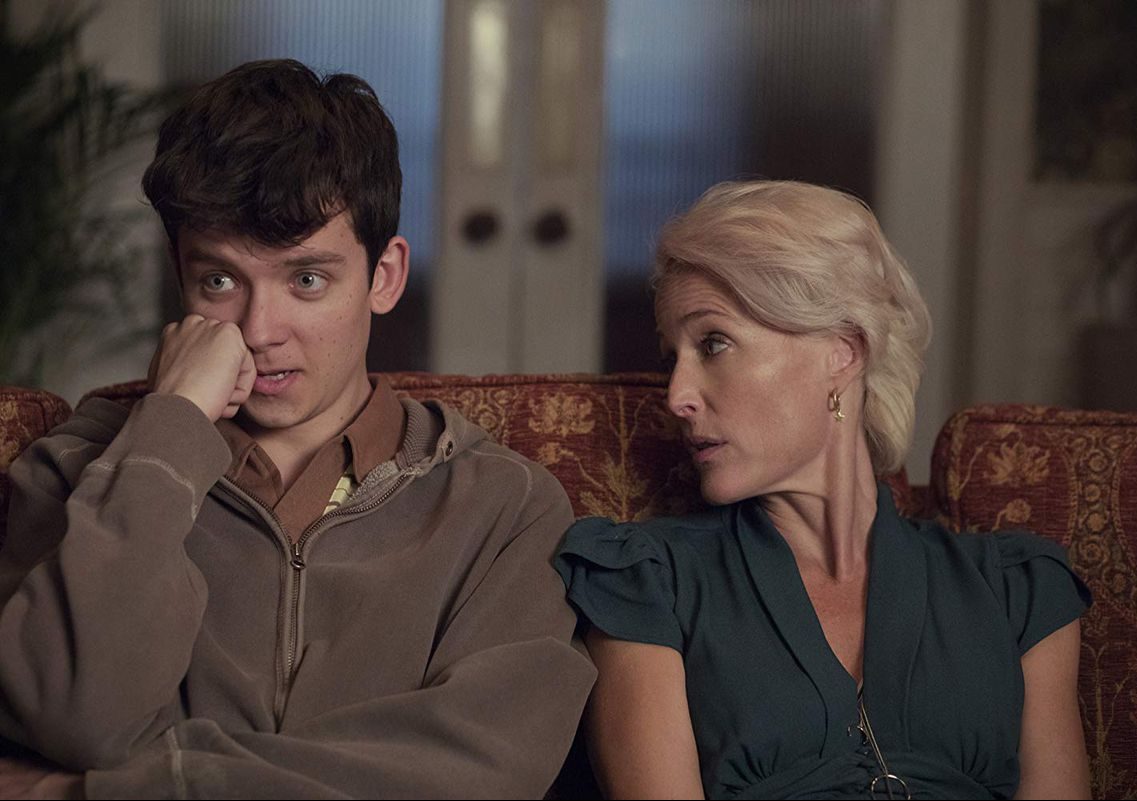Photo courtesy of vox.com.
ANNA SMITH | OPINION COLUMNIST | agsmith2@butler.edu
Sex Education. Health class’s most infamous topic now made into the hit Netflix series “Sex Education.” This show has delivered us vibrant, multifaceted 21st century high schoolers who experience their teen lives in the English countryside.
The second season, released Jan. 17 of this year, brings the same energy as the first did. The cast is infectiously funny, relatable and real. The transparent discourse of sex, sexuality and intimacy normalize this aspect of many people’s lives.
Otis Milburn, the socially awkward main character, doesn’t have much first hand experience with sex, but when word gets out that his mom is a sex therapist, he decides to create a pseudo-therapy business with the outcast bad-girl, Maeve, to help with the school’s never-ending sexual inquiries.
The representation in this show is unparalleled. Not only is the racial casting diversity a refreshing sight for sore eyes, but the series discusses sexuality as a spectrum and represent it as such. The topics they cover hold no bounds, as they elaborate upon asexuality, kinks, masturbation and everything in between.
The show pushes boundaries of polite society, and if we start talking about these awkward but very normal aspects of the human experience, they cease to be awkward and become the norm.
While the show does talk candidly and casually about sensitive topics, it also urges that decisions concerning sex bear a physical and emotional weight that needs to be taken seriously and regarded with respect.
“Sex Education” creates a model of dialogue that should be integrated not only in pop culture, but into our schools and everyday lives. These ideas are progressive to discuss, sure, but they aren’t new to the human experience by any means.
Like it or not, preaching abstinence-only education has proved ineffective. Learning about safe sex is important whether one chooses to stay abstinent or not because it allows any person to potentially help others and stay safe if they decide to change their mind.
In a study published on the NCBI database on abstinence-only programs and pregnancy rates, data emphasizes that these methods aren’t working, and may actually have resulted in more pregnancies.
According to the study, “Increasing emphasis on abstinence education is positively correlated with teenage pregnancy and birth rates…Abstinence-only education as a state policy is ineffective in preventing teenage pregnancy.”
And also, it’s not always all about pregnancy! Staying safe from STIs no matter who your sexual partner is important, even if pregnancy isn’t even a factor. The knowledge of how to stay safe applies to everyone, no matter how you choose to identify.
Creating a climate where it is okay to ask the burning, embarrassing and common questions about sexuality and sexual intercourse will increase tolerance, and above all, safety. Beyond that, the confidence and acceptance conversations such as these can bring to kids otherwise alienated by their personal experiences is unquantifiable.
“Sex Education” does a seamless job of normalizing sex and doesn’t glorify it in a way so commonly seen before. Just like any other academic class, it’s confusing, can be a little embarrassing and a learning experience full of valuable information.
What I love about “Sex Education” is that it uses sex as a vehicle to discuss how to communicate, how to spot toxic behavior in relationships, and how to navigate the complicated mess that adolescence is. They bear all on this show — literally — but it is also furiously honest.
Yes, this show discusses sex, but it also grips at the heart strings. By showing familial struggles, bullies, tantrums, enormous responsibility, euphoria, spontaneity and thrilling fun, this show delivers characters full of depth through an invigorating script that results in a masterpiece.
Thinking back on my own sex ed, I can confidently say that I learned more about the implications of sex, how to practice safe sex and how to not be embarrassed of sex by watching “Sex Education” than in the actual classroom.
In just two seasons, “Sex Education” has effectively shaken the zeitgeist and has opened this discourse in a casual, every day type-of-way. They normalize it, and by doing so, offer other kids, parents and teachers to do so as well.
If schools addressed sex in the way that “Sex Education” does, a way that is both casual yet taken seriously and with intent, we would see many more tolerant, confident, and safe teenagers and adults alike.
There is something for everyone in this show, and you will not finish the series without learning something new, if not hundreds of new things. Do yourself a favor and let “Sex Education” charm you, entertain you and educate you all at once.



